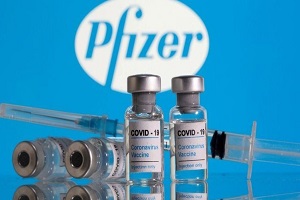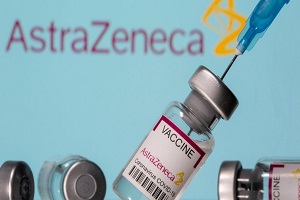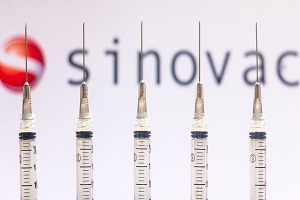WHAT IS VACCINE?
Vaccine is a product that stimulates a person's immune system to produce immunity to a specific disease,protecting the person from that disease. Vaccines also usually administered through needle injections, but can be administrated by mouth or sprayed into the nose.
WHY VACCINE IS IMPORTANT?
Getting vaccines is important as it is the safe and effective way to prevent disease and save life. Today, there are vaccine that can protect against at least 20 diseases, such as, diphtheroa, tetanus, pertussis, influenza and measles. Within these vaccine it can save the life up to 3 million people every year. During the COVID-19 pandemic, vaccination continues to be critically vital. The pandemic has caused a decline within the range of youngsters receiving routine immunizations, that could lead on to a rise in unwellness and death from preventable diseases. World Health Organization has urged countries to confirm that essential immunisation and health services continue, despite the challenges posed by COVID-19.
TYPES OF VACCINE
There are several types of vaccines that can boost our body's immune system from covid-19 infection, among them are:

Pfizer. Pfizer Inc, is a New York based Big Pharma Company. It is the second largest pharmaeutical company by revenue in 2020. In December 2020, where the Food and Drug Administration granted Pfizer an emergency use authorization for its COVID-19 vaccine. In response to the Covid-19 pandemic, Pfizer partnered with BioNTech in April 2020 to begin developing Covid-19 vaccine. In November, the drugmaker announced that data from phase 3 clinical trials had shown the vaccine was safe and effective with an efficacy of 95%. It requires two doses, 21 days apart.

Next is Astrazeneca. Since early 2020 when the true scale of the crisis became clear, AstraZeneca Company comitted to help to defeat Covid-19 by harnessing and sharing their scientific knowledge and erpertise to advance and accelerate the development of potential medicines to prevent virus.Two doses of the Astra/Zeneca vaccine are required.From a regulatory perspective, the TGA has reviewed all the available evidence and determined that the AstraZeneca vaccine can be safely administered 4-12 weeks apart. People who have had the first dose of the COVID-19 AstraZeneca vaccine without any serious adverse effects should have the second dose. This includes under 60 years.

CoronaVac that also known as Sinovac Covid-19 vaccine is an inactivated virus that developed by Sinovac Biotech in China. It was phase III clinical trialled in Brazil, Chile, Indonesa, the Philiphines, and Turkey and relies on traditional technology similar to BBIBP-CorV and Covaxin.The vaccine is given by intramuscular injection into deltoid muscle. The initial course consists of two doses. According to the World Health Organization (WHO), there is no evidence that a third booster dose is needed, but early evidence from Chile suggest it might be. The WHO recommends an interval of 2 to 4 weeks between doses, with data from Chile suggesting that a longer interval provides more robust immunnity.